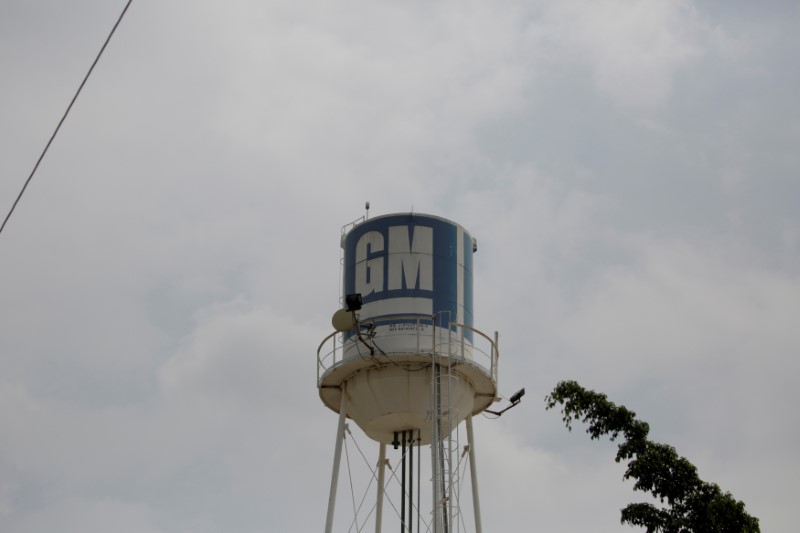By Mrinalika Roy
(Reuters) -A tight U.S. labor market, the expiry of union contracts and high living costs have led to tough negotiations for pay hikes and benefits, triggering strikes and protests across industries.
Nearly 444,900 workers have been involved in work stoppages and strikes through October this year, according to preliminary data from the U.S. Bureau of Labor Statistics, putting 2023 on track to becoming the busiest year for strikes since 2018.
Here are some sectors and companies that faced tough negotiations in 2023:
MEDIA
Members of the Writers Guild of America (WGA) approved a new three-year contract with major studios on Oct. 9. Film and television writers had walked off the job in May over compensation, staffing and residual payments, among other issues. They returned to work on Sept. 27 after negotiators reached a tentative agreement.
Hollywood actors reached a tentative agreement with major studios on Nov. 8 to resolve the second of two strikes that rocked the entertainment industry as writers and performers demanded higher pay in the streaming TV era.
Valued at more than $1 billion, the three-year contract includes increases in minimum salaries and a new bonus paid by streaming services, the union said.
AUTOMOTIVE
General Motors (NYSE:), Ford (NYSE:) and Chrysler-owner Stellantis (NYSE:) ratified deals with United Auto Workers (UAW) members in November.
The UAW said on Nov. 15 that about 3,900 of its members working at Mack Trucks ratified a new five-year contract, ending a month-long strike at the Volvo (OTC:) Group-owned company.
PARCEL DELIVERY
Teamsters union workers at United Parcel Service (NYSE:) ratified a new five-year contract in August, a deal that raises pay, eliminates a two-tier wage system for drivers, provides another paid holiday and ends forced overtime.
FedEx (NYSE:) pilots have been involved in a standoff with the parcel delivery firm over wages and legacy pensions. Pilots rejected a tentative deal in July and negotiations are ongoing.
AIRLINES & AEROSPACE FIRMS
Pilots at several airlines including American Airlines (NASDAQ:), Delta Air Lines (NYSE:), United Airlines Holdings (NASDAQ:), Spirit Airlines (NYSE:) and Jetblue Airways negotiated new job contracts this year.
Members of some unions like the Southwest Airlines (NYSE:) Pilots Association have voted to authorize a strike if a new contract is not reached.
Spirit AeroSystems (NYSE:) negotiated a new contract to end a strike that led to a week-long work stoppage at its plant in Wichita, Kansas.
MANUFACTURING
U.S. steel producer Cleveland-Cliffs (NYSE:) has reached a tentative agreement with the United Steelworkers union on a new three-year labor agreement for its Northshore mining operations.
U.S. Steel, which is reviewing multiple proposals ranging from partial acquisition to an entire buyout, is embroiled in a tussle with the United Steelworkers union. The company’s unionized workers say they essentially have the power to veto any transaction they do not approve of.
CONSUMER & RETAIL
In Las Vegas, thousands of workers reached agreements with casino operators and resorts Caesars (NASDAQ:) Entertainment, MGM Resorts (NYSE:) and Wynn Resorts (NASDAQ:) in November to avoid strikes that could have crippled tourism in the city.
The Detroit Casino Council reached a tentative agreement for a new contract covering 3,700 workers at MGM Grand Detroit operated by MGM Resorts, Hollywood Casino at Greektown operated by Penn and MotorCity Casino on Nov. 17.
The Detroit Casino Council had called the first strike in its history last month after negotiations that had begun in the summer did not yield a new contract.
More than 3,000 workers at more than 150 Starbucks (NASDAQ:) stores in the U.S. held strikes in June, following claims the company had banned Pride Month decorations at some of its cafes.
Workers at hundreds of Starbucks stores walked off their jobs during a key promotional event on Nov. 16, demanding improved staffing and schedules.
Thousands of Los Angeles-area hotel staffers went on a three-day strike in July over improved wages, benefits and working conditions. Union leaders representing the workers have threatened further walkouts.
HEALTHCARE
Kaiser Permanente’s healthcare workers voted to ratify a new contract with the hospital chain on Nov. 9, ending a months-long negotiation that resulted in the largest recorded strike in the U.S. medical sector.
More than 7,000 nurses went on a three-day strike in New York City over staffing levels and pay hikes in January.
Workers at CVS Health (NYSE:) and Walgreens Boots Alliance (NASDAQ:) announced a three-day walkout from Oct. 30, dubbed “Pharmageddon”, to improve working conditions and add more staff.
CANNABIS
Unions representing cannabis workers have also increased pressure on companies in the sector this year.
Workers at Green Thumb Industries (OTC:)’ Chicago-area RISE dispensaries went on a 13-day unfair labor practices (ULP) strike in April, which was the longest ULP strike at a cannabis retailer in U.S. history.
Labor unions secured new contract agreements at multistate operator-owned cannabis dispensaries in Illinois and in New Jersey in July.
ENERGY
Unionized workers at Phillips 66 (NYSE:)’s refinery in Roxana, Illinois, ratified a contract with the refiner in late-stage negotiations, averting a potential strike.
The union had been in talks with the refiner since summer, when it rejected a company proposal and sought additional benefits for holiday and vacation hours and pay, among other improvements.
Read the full article here





